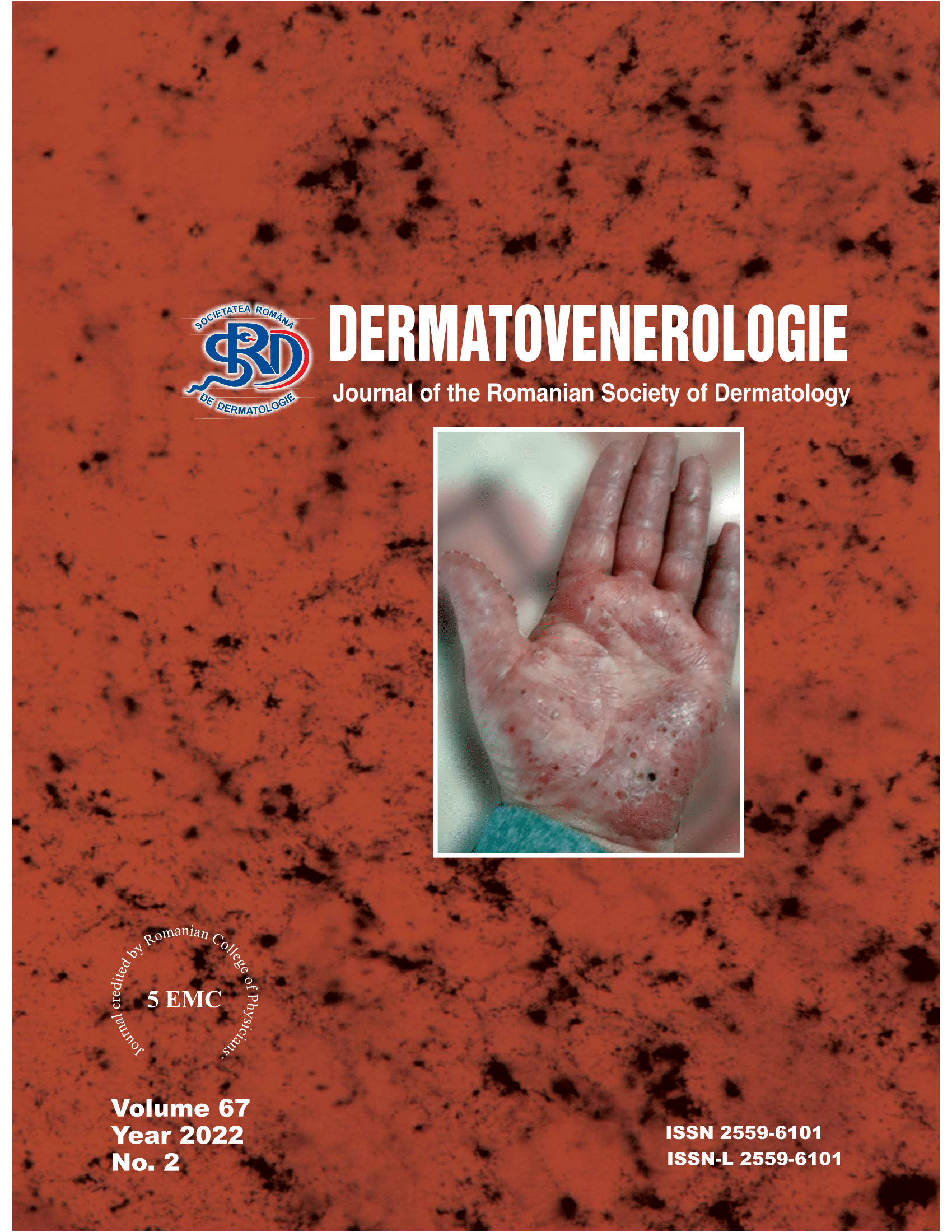Summary
Pemphigus refers to a group of rare and severe autoimmune blistering diseases. Autoantibodies are directed against the cell surface of keratinocytes, resulting in a process called acantholysis.
Considering that pemphigus has a molecular mechanism and that there is an immune response alteration during the disease, several possible triggers have been discussed, including pregnancy. However, pemphigus is a disease that rarely occurs during pregnancy.
In response to the COVID-19 pandemic, various anti- COVID-19 vaccines have been developed. In the literature, there are extremely rare cases of flares or de novo development of autoimmune diseases, such as pemphigus vulgaris and bullous pemphigoid, within 2 weeks after COVID-19 vaccination.
We are presenting the case of a 34-year-old patient, from an urban area, who is admitted to the hospital for a well demarcated eruption consisting of crusted erosions placed on an erythematous base, with a seborrheic distribution, including the scalp, face and trunk, with no mucous membrane involvement. The lesions appeared two months ago, in the third trimester of pregnancy, 5 days after the second-dose of COVID-19 vaccine. The onset of the disease was subtle with a transient small flaccid blister located on her left breast, followed by the scalp and trunk involvement. In order to confirm the clinical diagnosis, a skin lesion biopsy was performed that certified the diagnosis of foliaceus pemphigus. Given the patient’s postpartum status at the time of hospitalisation and the clinical appearance of the disease, it was decided to initiate systemic therapy with methylprednisolone, approximately 1 mg/kg/ day that was slowly tapered.
Considering the relatively recent onset after vaccination and the low incidence of pemphigus in pregnancy, we can hypothesise that the vaccine might actually be the trigger.


